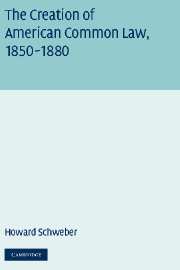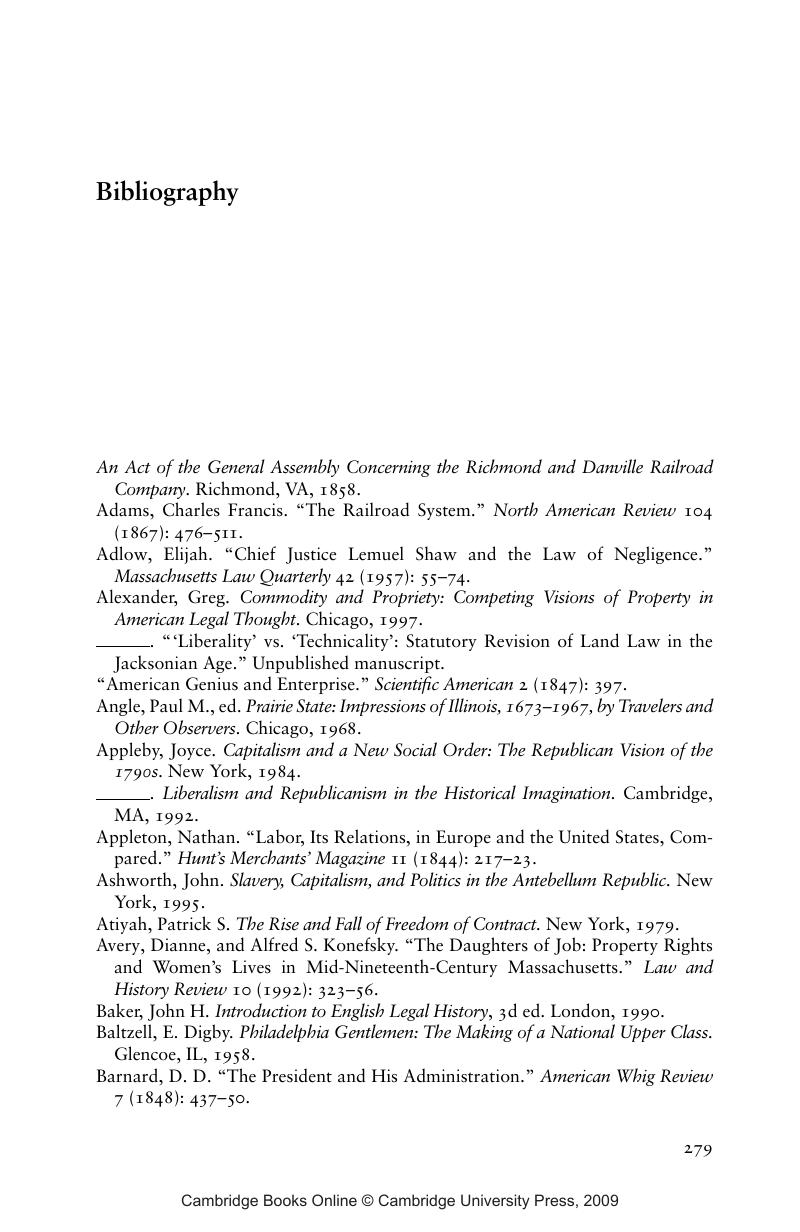 The Creation of American Common Law, 1850–1880
The Creation of American Common Law, 1850–1880 Book contents
- Frontmatter
- Contents
- Acknowledgments
- Introduction
- 1 North and South
- 2 Illinois: “We Were Determined to Have a Rail-Road”
- 3 “The Memory of Man Runneth Not to the Contrary”: Cases Involving Damage to Property
- 4 “Intelligent Beings”: Cases Involving Injuries to Persons
- 5 The North: Ohio, Vermont, and New York
- 6 Virginia through the 1850s: The Last Days of Planter Rule
- 7 The Common Law of Antebellum Virginia: The Preservation of Status
- 8 Virginia's Version of American Common Law: Old Wine in New Bottles
- 9 The South: Georgia, North Carolina, and Kentucky
- 10 Legal Change and Social Order
- Index of Cases
- Bibliography
- Index
- References
Bibliography
Published online by Cambridge University Press: 22 July 2009
- Frontmatter
- Contents
- Acknowledgments
- Introduction
- 1 North and South
- 2 Illinois: “We Were Determined to Have a Rail-Road”
- 3 “The Memory of Man Runneth Not to the Contrary”: Cases Involving Damage to Property
- 4 “Intelligent Beings”: Cases Involving Injuries to Persons
- 5 The North: Ohio, Vermont, and New York
- 6 Virginia through the 1850s: The Last Days of Planter Rule
- 7 The Common Law of Antebellum Virginia: The Preservation of Status
- 8 Virginia's Version of American Common Law: Old Wine in New Bottles
- 9 The South: Georgia, North Carolina, and Kentucky
- 10 Legal Change and Social Order
- Index of Cases
- Bibliography
- Index
- References
Summary

- Type
- Chapter
- Information
- The Creation of American Common Law, 1850–1880Technology, Politics, and the Construction of Citizenship, pp. 279 - 292Publisher: Cambridge University PressPrint publication year: 2004
